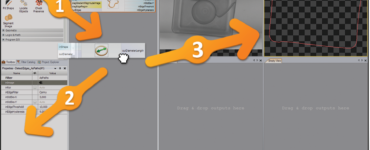In an age where portable devices are ubiquitous, managing battery life efficiently is paramount. The bq40z50 Python code emerges as a powerful tool, offering developers unprecedented control over battery management. This comprehensive guide will delve into the intricacies of the bq40z50 Python code, its applications, and how it empowers you to optimize battery performance.
Understanding the bq40z50 Battery Management IC
Battery management integrated circuits (ICs) play a pivotal role in safeguarding battery life and enhancing user experience. Among these, the bq40z50 stands out for its versatility and robust features. This IC is capable of monitoring vital battery parameters, such as voltage, current, and temperature, ensuring safe and efficient operation.
The Power of Python in Battery Management
Python, a versatile programming language, serves as an ideal companion for implementing bq40z50 functionalities. Its intuitive syntax and extensive libraries make coding battery management strategies a breeze. By harnessing Python’s potential, developers can access the full scope of bq40z50’s capabilities.
Getting Started with bq40z50 Python Code
Before delving into the code, it’s essential to set up the development environment. Begin by installing the required libraries and ensuring the proper connection between your hardware and the bq40z50 IC. Once set up, you can access battery data and implement control algorithms seamlessly.
Reading Battery Data Using Python
To truly optimize battery performance, you must first gather data. The bq40z50 Python code allows you to effortlessly retrieve critical information, including state of charge (SoC), state of health (SoH), and cycle count. By regularly monitoring these metrics, you gain insights into battery degradation and can make informed decisions to prolong its lifespan.
Implementing Dynamic Voltage and Current Control
One of the bq40z50’s standout features is its ability to dynamically adjust voltage and current parameters. With Python code, you can fine-tune these settings based on real-time requirements. For instance, when a device demands high power, the bq40z50 Python code can instantaneously adapt, ensuring optimal performance without compromising safety.
Overcoming Temperature Challenges
Temperature fluctuations can significantly impact battery performance and longevity. The bq40z50 IC excels in temperature management, and with Python, you can implement temperature-dependent charging and discharging profiles. This ensures that the battery operates within safe temperature limits, reducing the risk of damage and enhancing overall efficiency.
Advanced Charging Algorithms with bq40z50
Charging a battery efficiently requires more than a one-size-fits-all approach. The bq40z50 Python code empowers you to implement advanced charging algorithms tailored to specific battery chemistries. Whether it’s lithium-ion, nickel-metal hydride, or another chemistry, Python’s flexibility enables you to optimize the charging process for maximum capacity and longevity.
Realizing IoT Potential with bq40z50 and Python
In the rapidly expanding realm of the Internet of Things (IoT), power management is paramount. The bq40z50 IC, coupled with Python code, enables seamless integration into IoT devices. From wearable gadgets to smart home appliances, the combination ensures that battery-related issues are minimized, enhancing user satisfaction.
Troubleshooting and Debugging with Python
No development process is without challenges, and battery management is no exception. The bq40z50 Python code facilitates efficient troubleshooting and debugging. With Python’s interactive nature, developers can quickly identify and rectify issues, ensuring smooth operation and a shorter time to market.
Harnessing Data Analytics for Continuous Improvement
The data collected by the bq40z50 IC provides a goldmine of insights. By integrating Python-based data analytics, you can uncover usage patterns, optimize power consumption, and predict battery health. This proactive approach not only enhances user experience but also establishes your product as a frontrunner in the market.
Conclusion
The bq40z50 Python code emerges as a game-changer in battery management, offering a comprehensive suite of tools to optimize performance, enhance efficiency, and extend battery life. With its seamless integration into the versatile Python programming language, developers can harness the full potential of the bq40z50 IC and revolutionize the way we manage batteries in an increasingly connected world. Embrace the power of bq40z50 Python code today and pave the way for a greener and more efficient future.










